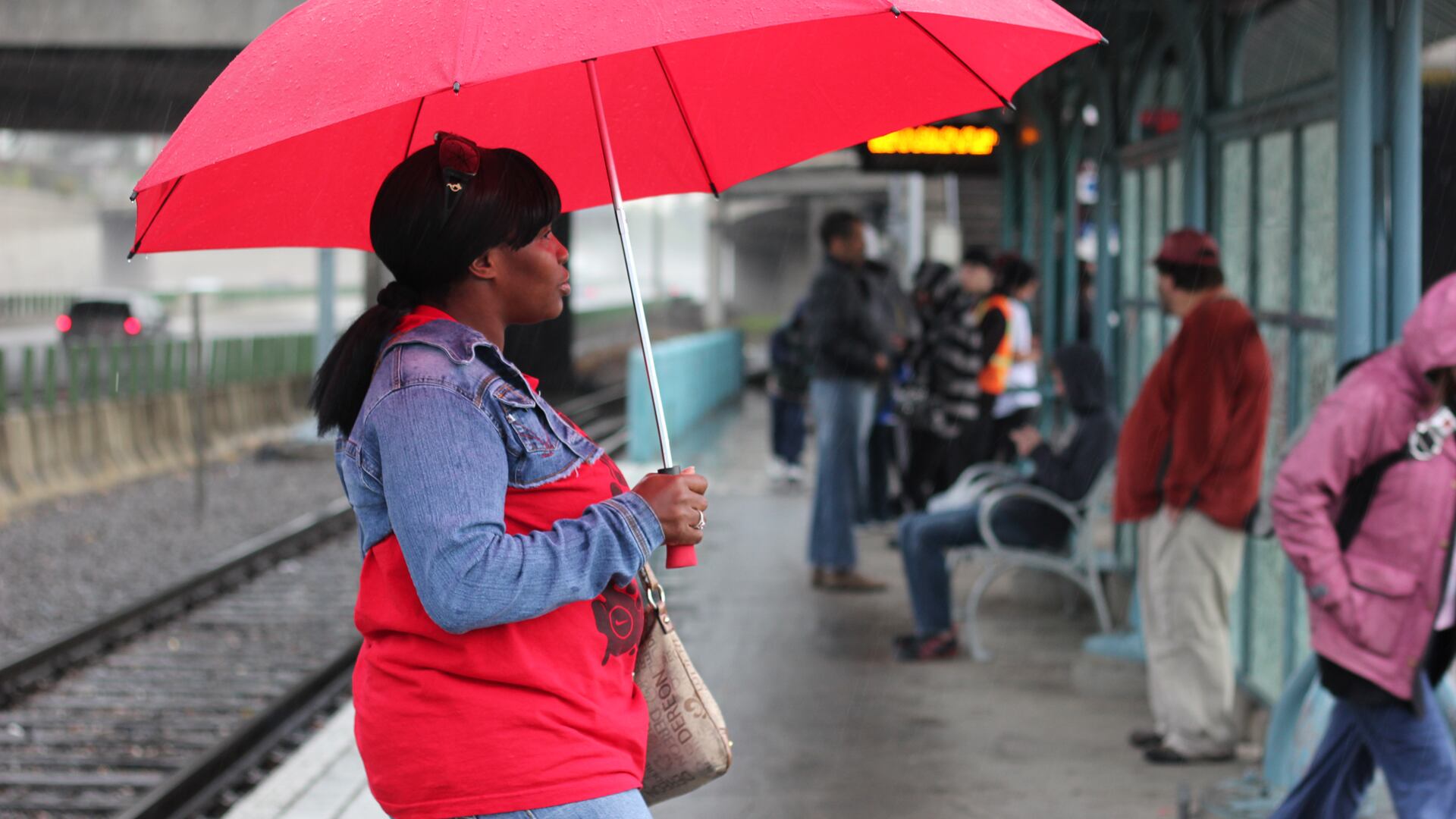A new poll commissioned by the Metro Regional Council shows that a $3 billion transportation measure, Get Moving 2020, aimed at the November ballot, is in trouble.
When pollster FM3 Research asked 699 voters in the last week of May whether they would support the measure if it were on the ballot today, only 47% said "yes." And within the responses, 31% of respondents said "definitely no," while only 20% said "definitely yes."
Karynn Fish, a spokesperson for Metro, noted that when asked about specific transportation and safety improvements the measure could fund, voters responded positively.
"The survey shows that more than two-thirds of respondents support the investments in the Get Moving 2020 plan," Fish said in a statement.
But she also acknowledged that in terms of whether voters actually support the measure itself, the numbers are not great.
"We have work to do to make sure the ballot question reflects the breadth of the improvements to our transportation system and the outcomes the investments will achieve," Fish said. "We know people want a safer, more reliable, more equitable and more sustainable transportation system, and we know the investments in this plan will deliver it. Now we just have to explain it in 30 words or less."
The new numbers are weaker than polling results Metro released in December, which showed support at around 51% for a less defined version of the measure.
"These numbers have to be disappointing for Metro," said John Horvick of the polling firm DHM Research, who reviewed the agency's new polling at WW's request.
"Of the four short descriptions of the transportation funding measure, only one received majority support—and just barely, at 54%. Another received only 39% support. Not only are these numbers weak on their own, they are heading in the wrong direction."
Of course, a great deal has changed since Metro last polled in December: Oregon's economy went from record low unemployment to record high unemployment, for one. And, under Gov. Kate Brown's stay-home order, vehicle traffic declined precipitously (although it is rebounding now).
A likely factor cutting against support for the measure is a declining concern about traffic. Now 54% of residents say that traffic is a serious problem or worse. That's down from 71% in December 2019. This decline may very well turn out to be temporary, however, as the economy starts up again.
As was the case during the Great Recession a decade ago, Metro is now pitching the transportation measure as a jobs creation mechanism, in addition to touting the congestion relief and safety measures it pointed to in pre-COVID-19 times.
Fish noted that voters responded favorably to the economic benefits the measure could bring. "Unemployment and the economic impacts of the COVID-19 pandemic are urgent concerns for voters," she said. "The Get Moving 2020 plan would create tens of thousands of new jobs and help jump-start our local economy, and that's now a top reason to support it."
After initially asking respondents how they felt about the measure, the pollster then provided more information. Here's what was added:
"The draft plan includes many shovel-ready projects that can create tens of thousands of family-wage jobs. Funding would be used for earthquake upgrades, and traffic and pedestrian safety improvements; to make buses faster and more reliable; to improve access to Main Street businesses; and to help ensure we keep planning for future growth. This measure can play a key role in putting people back to work and rebuilding our economy," the pollster wrote.
Horvick agrees that emphasizing economic benefits is helpful. "Many of the arguments they tested in support of the measure resonated with voters," he says. "With unemployment nearing 15%, job creation could be the key to the success of a transportation measure."
Fish said the Metro Council expects to decide in July whether it will refer the measure to the November ballot.
